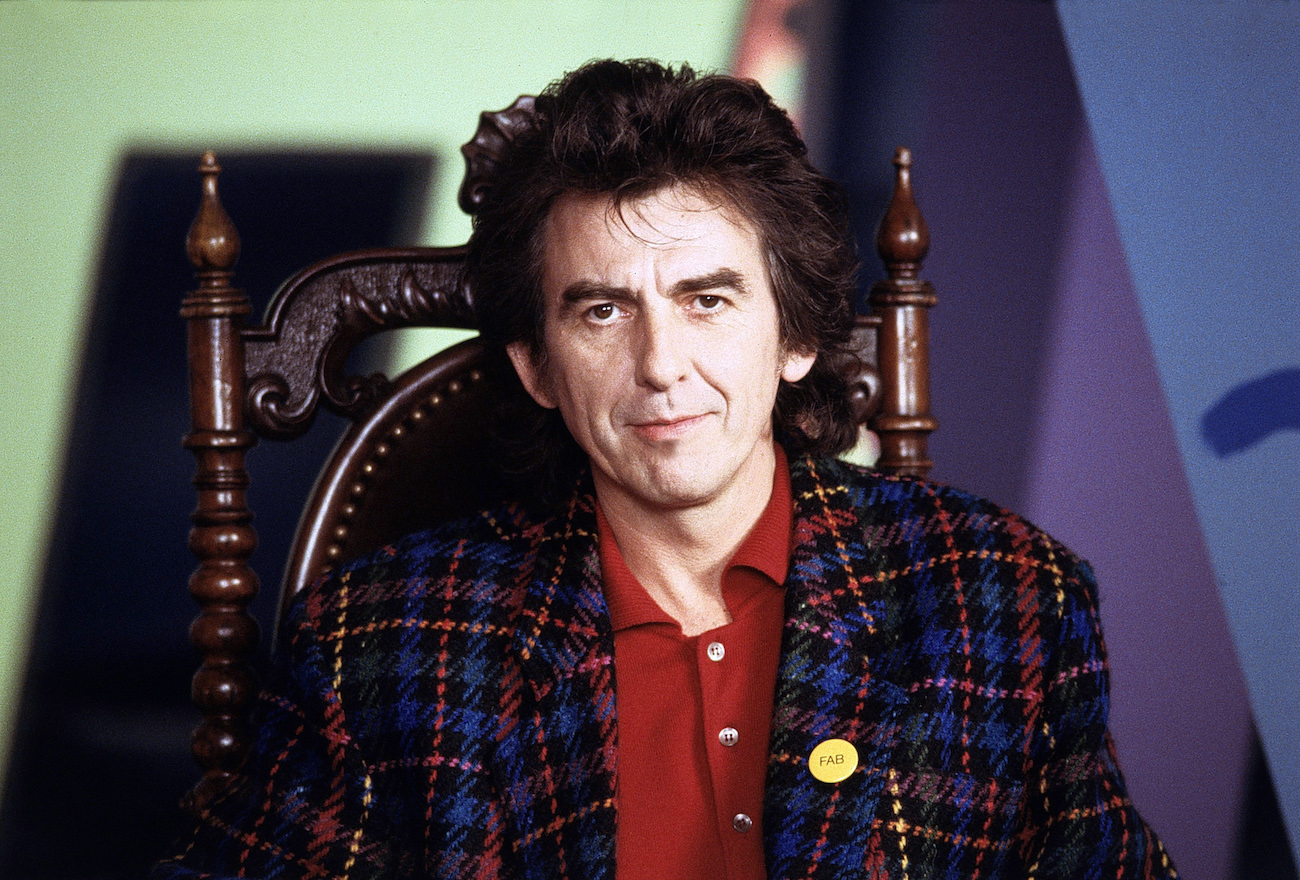Tom Petty Said George Harrison Could Be Funny When He Was Cynical
Tom Petty knew his friend George Harrison very well. He saw the best and the worst of the former Beatle as a friend and bandmate since the late 1980s. Petty admitted that George had a cynical side. However, that doesn’t mean George was a downer. Actually, for Petty, it was quite the opposite. George could be funny when he was being pessimistic.

Tom Petty said George Harrison became ‘aggressive’ when he wanted to become friends with someone
According to Petty, George became aggressive when he knew he wanted to be friends with someone.
“We became very good friends, really, for decades,” Petty told NPR. “I don’t like to bring it up that much, because The Beatles are so special that people might see it as boasting or something.
“But he actually became my friend, past being a Beatle to me. It was like having an older brother that had a lot of experience in the music business, someone who I could go to with my troubles and questions.
“George was probably everything that you thought he was, and then some more. Very funny man; he could just kill me with his humor. He was a great guy and I miss him terribly.
“Strangely enough, we got along very well right away. He was the kind of person that, when he came across a good thing or the potential for a friend, he really was aggressive about it. And he had a way of knocking out anything that was extracurricular, or in the way of what was really going on. He could get you comfortable with him very quickly.”
Petty said George could be funny even when he was being cynical
George could be very cynical when he wanted to be. It stemmed from growing up poor in Liverpool in the 1940s and getting worn out by The Beatles. However, he knew how to keep things humorous.
NME wrote that George was a man “who seemed to have just about the right balance of enthusiasm and cynicism, recognised his own flaws, and appeared to have emerged from the wreckage of the Biggest Band Of All Time happier and more balanced than anyone else who was involved with it.”
“The media and the fans called him ‘the quiet one.’ I find that funny,” Dr. John told the New York Times. “If he was quiet it wasn’t when he was with me. Or when I saw him around other musicians. He was anything but quiet,” he said. “He had a cynical, dry sense of humor. Especially about the record industry.
“He cut right to the jugular with his wit about the executives in the music business. He had the same philosophy as Doc Pomus (the songwriter): ‘I’d rather be a poor poet than a rich agent.'”
Petty would’ve agreed with both statements. George wasn’t the “quiet Beatle” because he “never shut up.” The musician also experienced George’s dry, cynical humor.
In a special edition of Rolling Stone called “Remembering George,” Petty said, “George really said everything that crossed his mind. I used to say, ‘You really can’t get a thought to your brain without it slipping out your mouth.’
“And he was painfully honest. It was an endearing trait, but sometimes you hoped that he wouldn’t be quite as honest as he was going to be.
“Let’s be honest. There was Cranky George, and he could be very cynical at times. He would always be the first to nail himself as being too cynical, but he was quite funny when he was really cynical. But he was very funny, like, ‘The Beatles, they weren’t all that they were cracked up to be’ [laughs].”
The former Beatle was cynical, but he didn’t let anger and bitterness eat him alive
George had a lot to be cynical about. When The Beatles broke up, he was left on his own. He only recorded All Things Must Pass as a reaction to leaving the band. After that, the record companies and fans wanted more than George wanted to give.
He hated them looking at him from a microscope; he couldn’t do anything freely, even when dying. However, even as George was cynical about fame, the press, record companies, and fans’ expectations, he never let anger and pessimism rule his life.
“I’ll tell you, the media wasn’t very sweet in the last year of his life,” Petty said. “He was probably the most hounded of his whole life when he was trying to deal with that. Especially in Europe, he never got a moment’s peace. He would have helicopters follow him when he left the house.
“I guess that comes with the territory. That’s part of the price you pay. He paid that price so many times — well, overpaid. But he’d be the first to say there’s nothing to be gained by bitterness or anger, hatred. I don’t know how many times he would remind me that bitterness or pessimism is only going to slow you down finding the solution. And he lived that way.”
Instead, George chose to be enthusiastic about music, his friends, and his family. “His enthusiasm was very contagious in a recording session, in a writing session,” Petty continued. “He just had unbridled enthusiasm. One of the things I’ll miss most is when he used to drop by and he would always have a guitar or a ukulele in his hands most of the evening.”
There was a lot of mystery surrounding George, but he let his friends see a glimpse of who he was from time to time.


